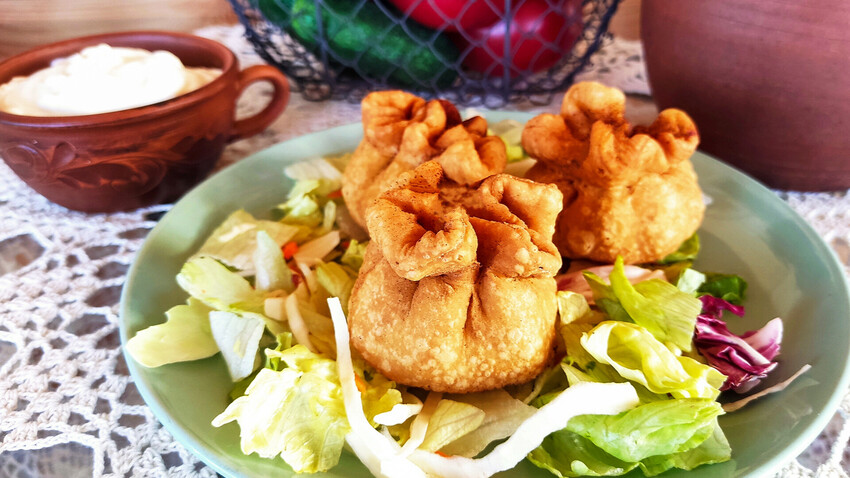
Unwrap the taste of “meat pear” pies with an exotic name, “khushuury”.
Olga BrovkinaKhushuury, also known as “meat pears” are a traditional dish of the Buryat people, an ethnic group native to the region of Lake Baikal in Siberia. These savory pies are made of dough filled with minced meat and onions, and then fried until golden brown in a frying pan.
The origins of khushuury can be traced back to ancient times when nomadic shepherds in Central Asia needed a portable and filling breakfast for long journeys. They prepared these pies by wrapping meat in dough, forming them into a pear shape, and frying them in a skillet. In Mongolia, a similar dish is prepared in the shape of a crescent-like little chebureki, and in Buryatia in the shape of a pear. The name of the dish came from the Turkish word khushor - which means a large or a large portion.
In Buryat culture, khushuury have a special meaning and are often prepared for holidays and celebrations. They are a symbol of the sun and associated with the mythology of the Buryat people, who give homage to the sun as the source of all life, warmth and light. The pear shape of the khushuury is said to represent the sun and its rays.
Outside of Buryatia, in the other regions of Russia, khushuury became popular in the 1990s when there was a surge of interest in the cuisine of the native peoples of Siberia. Today, they can be found on the menus of many restaurants and sold in markets across Russia.
Khushuury are typically made with lamb, although beef or pork can also be used, along with cheese or potatoes. The dough is made from flour, water, and salt, and sometimes milk or sour cream is added to make it more tender.
Preparing khushuury requires some skill, especially when it comes to forming the pear-shaped dough. It is essential to ensure that the filling is evenly distributed to prevent the dough from breaking while frying. Traditionally, khushuury are cooked in a skillet over an open fire, giving them a smoky and savory flavor. However, they can also be baked in an oven.
Khushuury can be served as a main course, a snack, or an appetizer accompanied by sour cream. They can also be paired with a simple salad made of cucumbers, tomatoes, and herbs.

Filling:
Dough:
1. First, let's prepare the dough. Pour flour into a bowl, add salt, eggs, water and knead the dough with your hands.
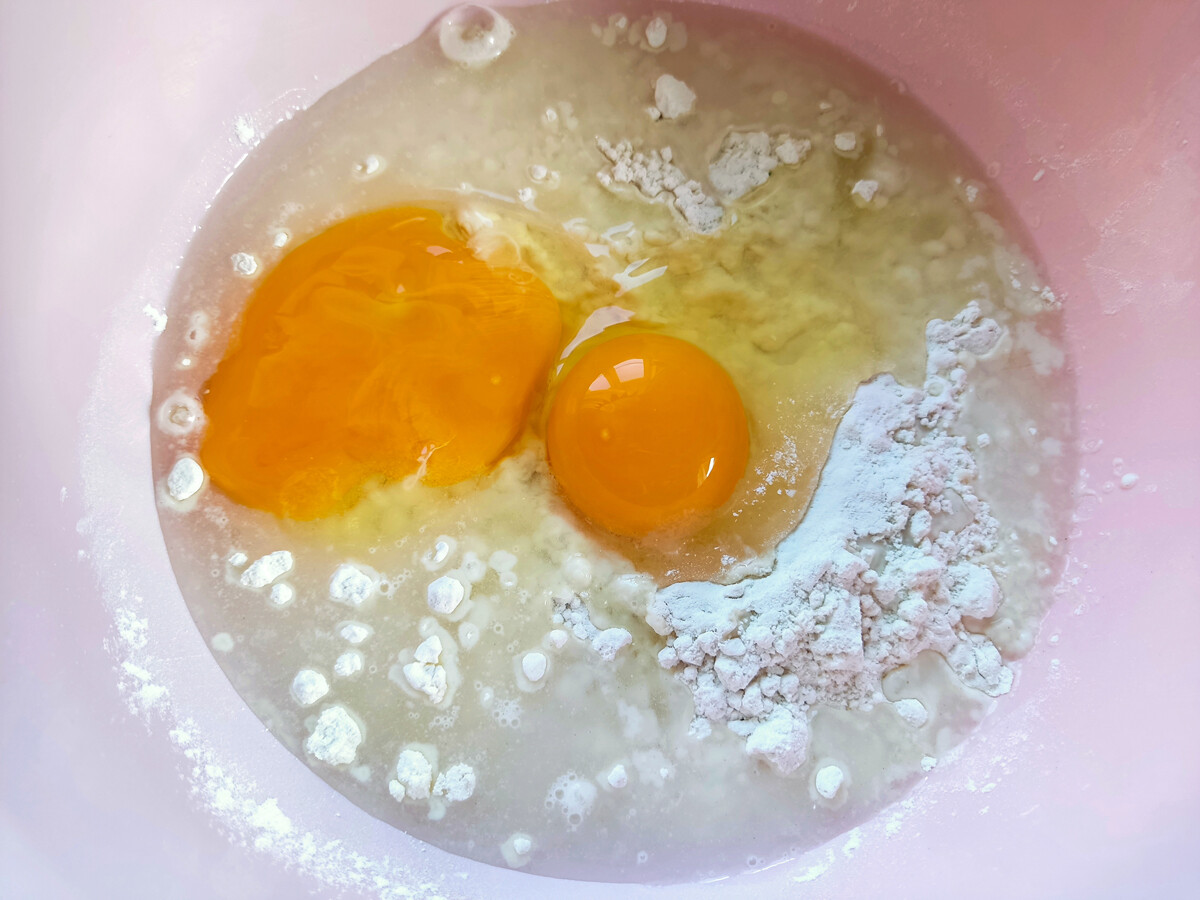
2. If necessary, add flour until you get an elastic piece of dough. Then wrap it in a film and put it in the refrigerator for half an hour.
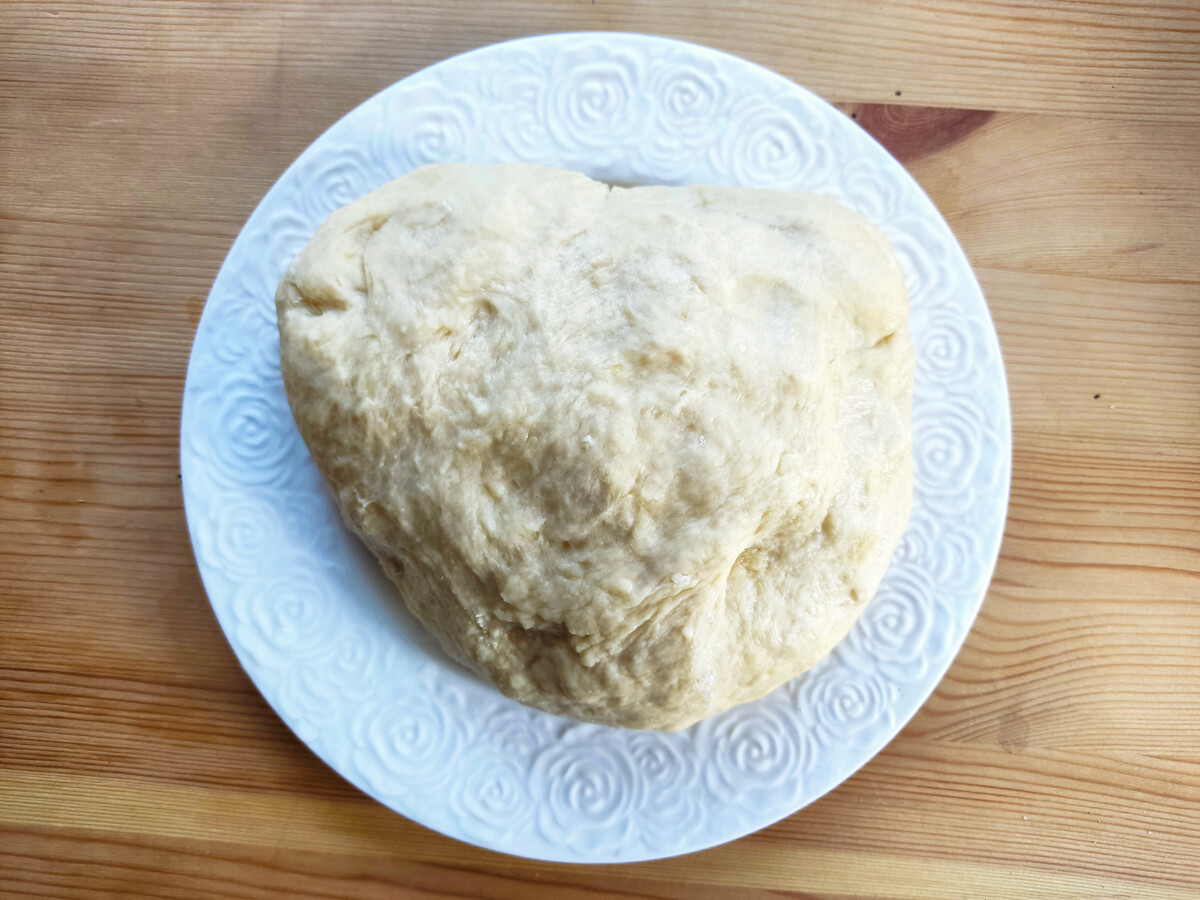
3. Now, let's make the filling. The meat should be washed, dried with a paper towel and finely chopped.
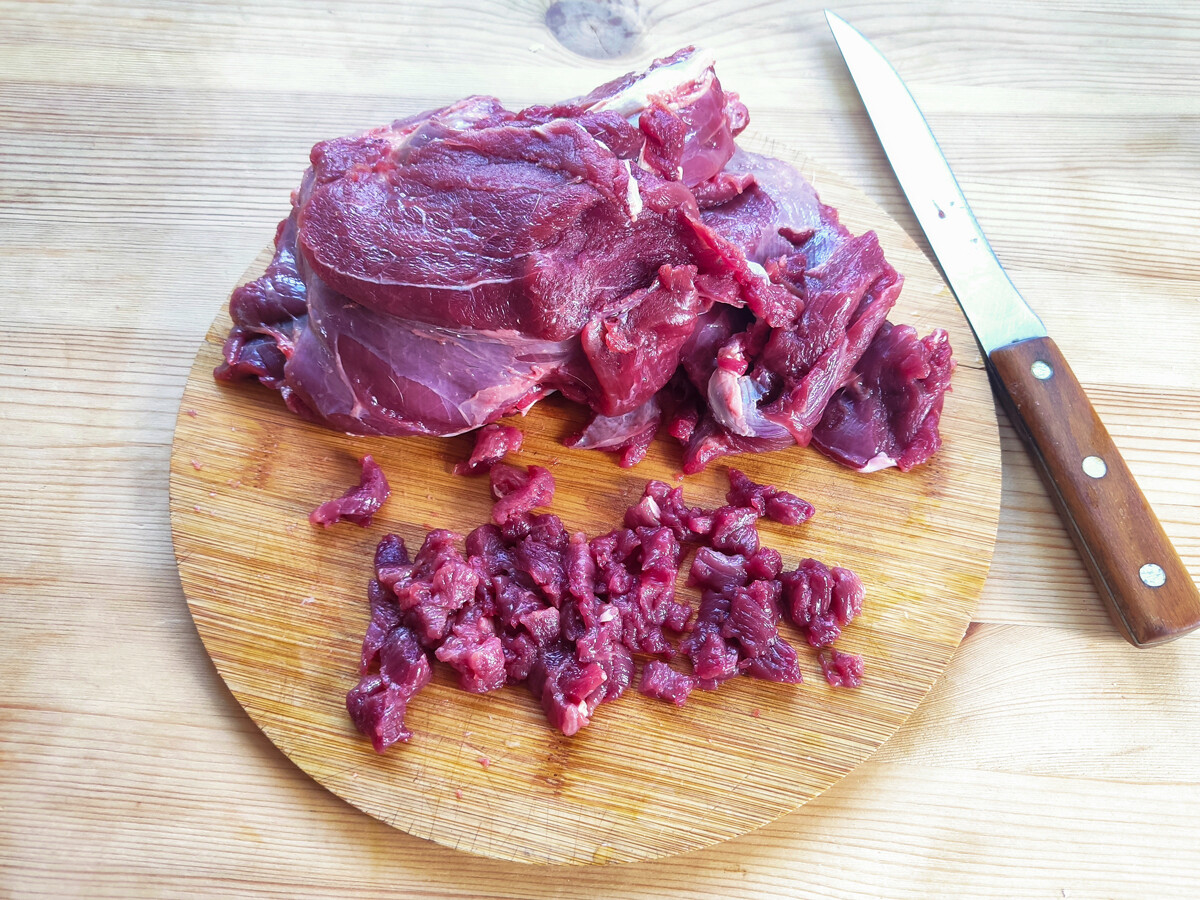
4. Chop the onion.
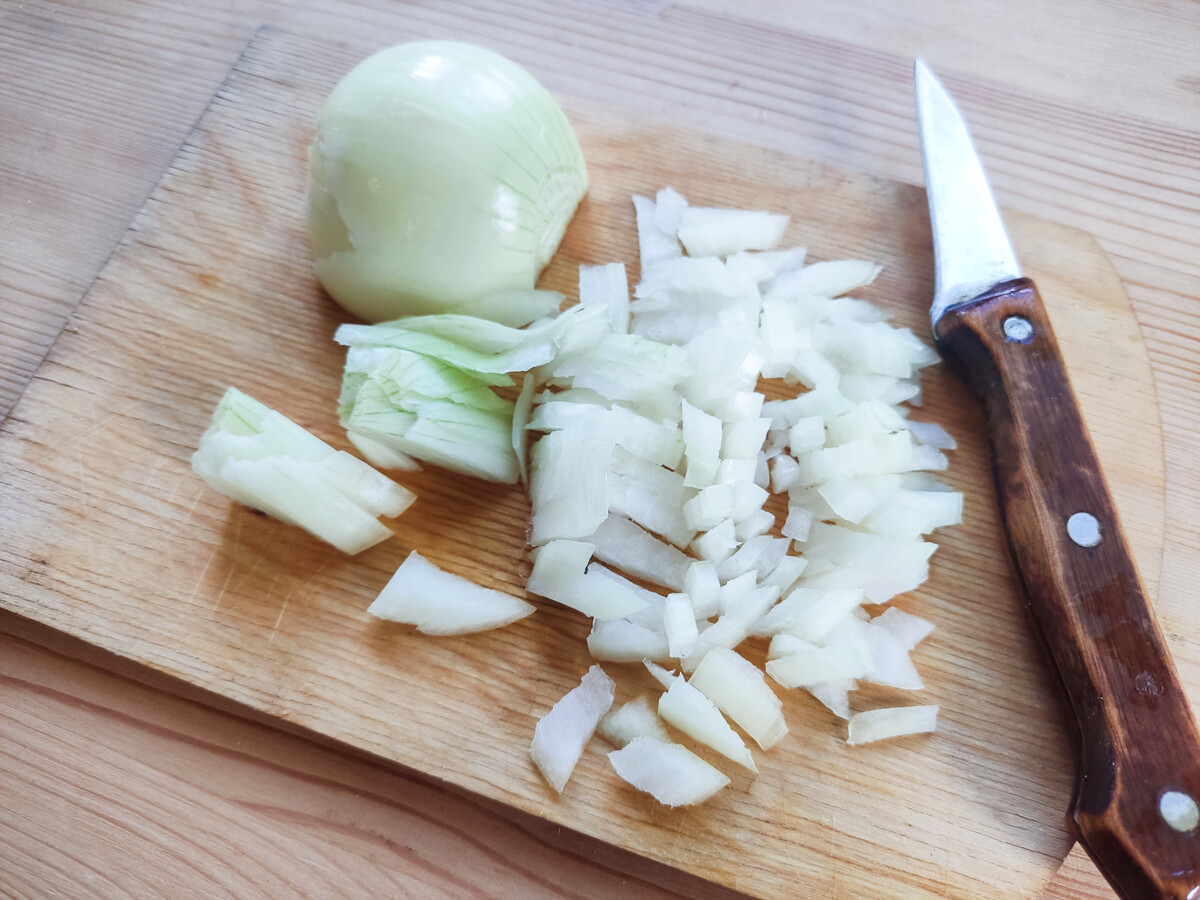
5. Into a big bowl put the meat and onion, add salt and pepper to taste, a little flour, and then mix well with your hands.
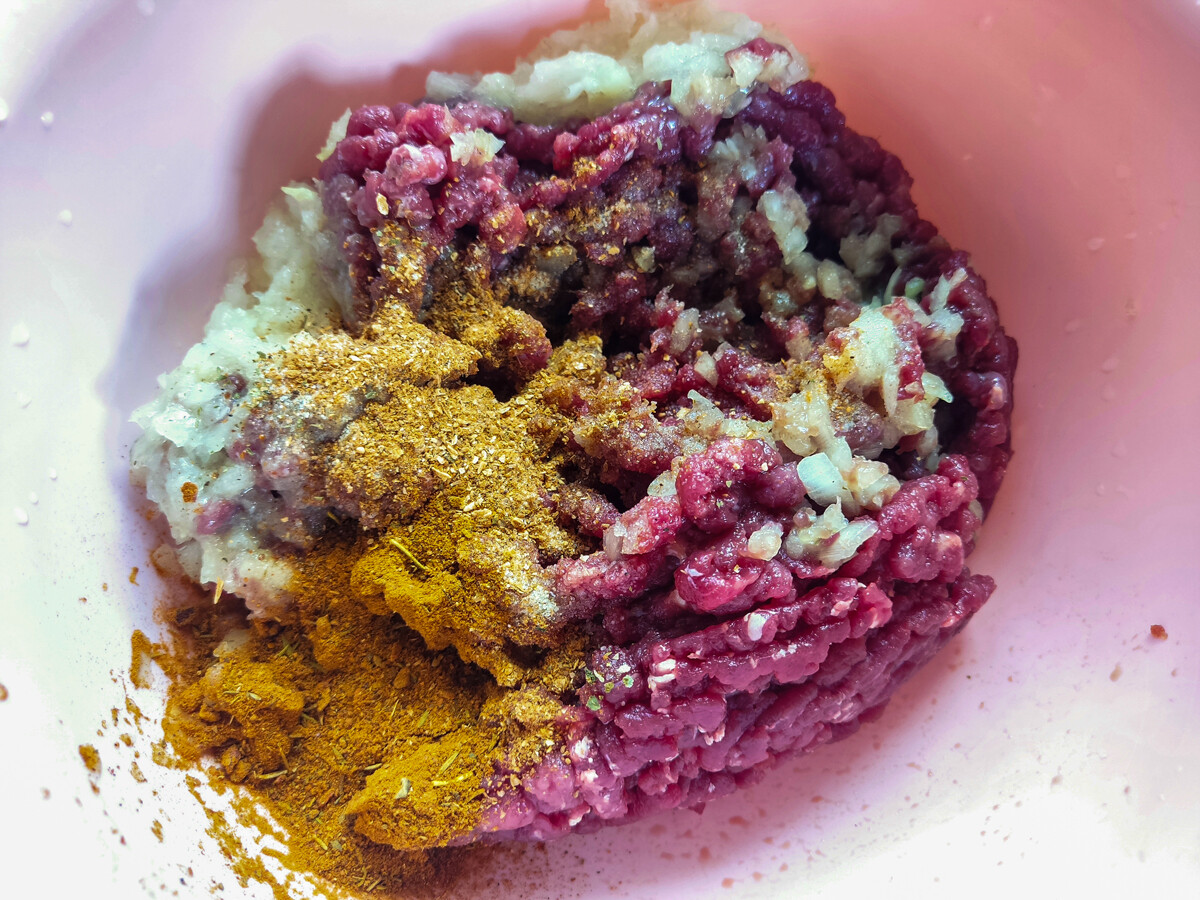
6. Take out the dough and roll out a layer 2-3 mm thick. Using a glass, cut circles with a diameter of about 10 cm.

7. Then put the meat in the center.
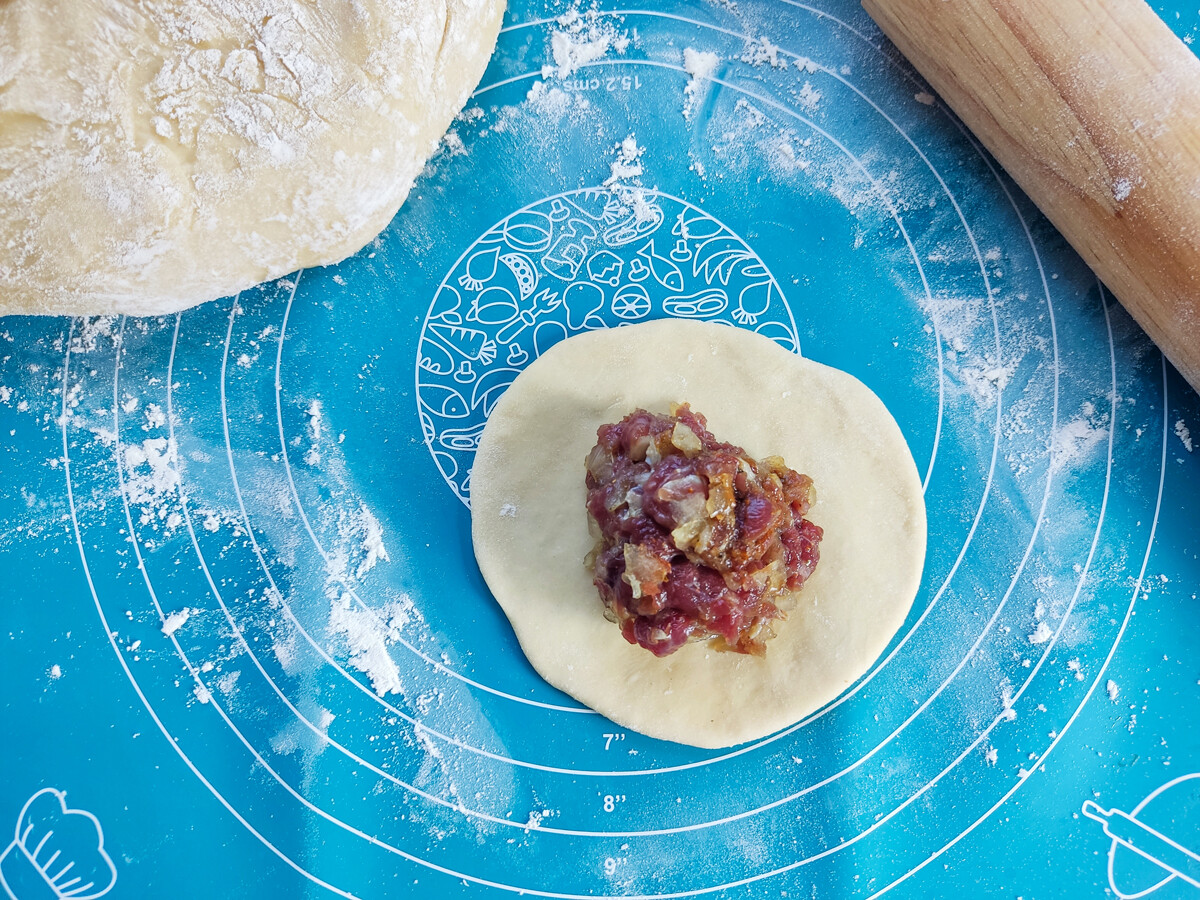
8. “Pick up” the edges and pinch them at the top so that there are no holes left. You should get the shape of a pear.

9. Pour sunflower oil generously into a deep frying pan or saucepan, and heat it well. Dip the piesin oil and fry until a thin golden crust forms. The main thing is not to overdo it.
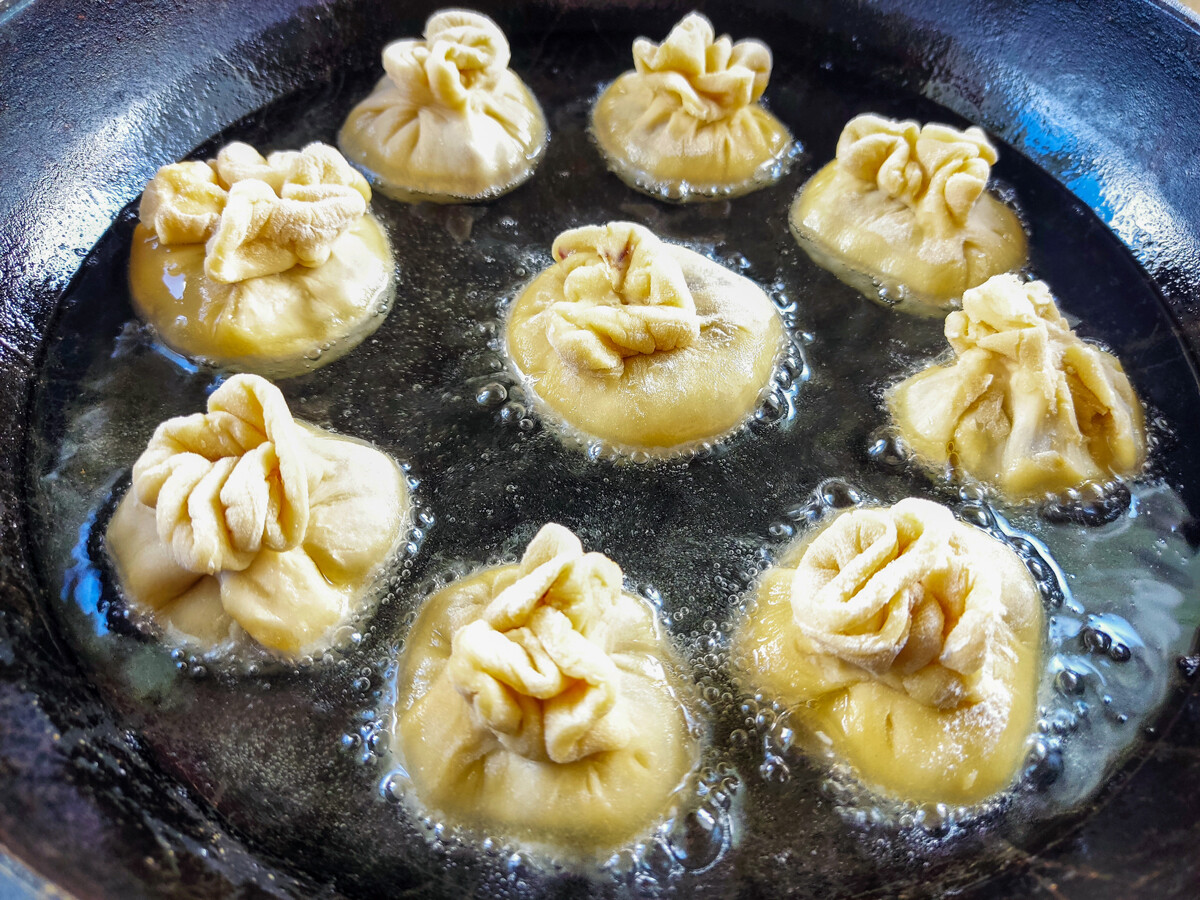
10. As soon as they acquire a golden color – it's time to take them out.
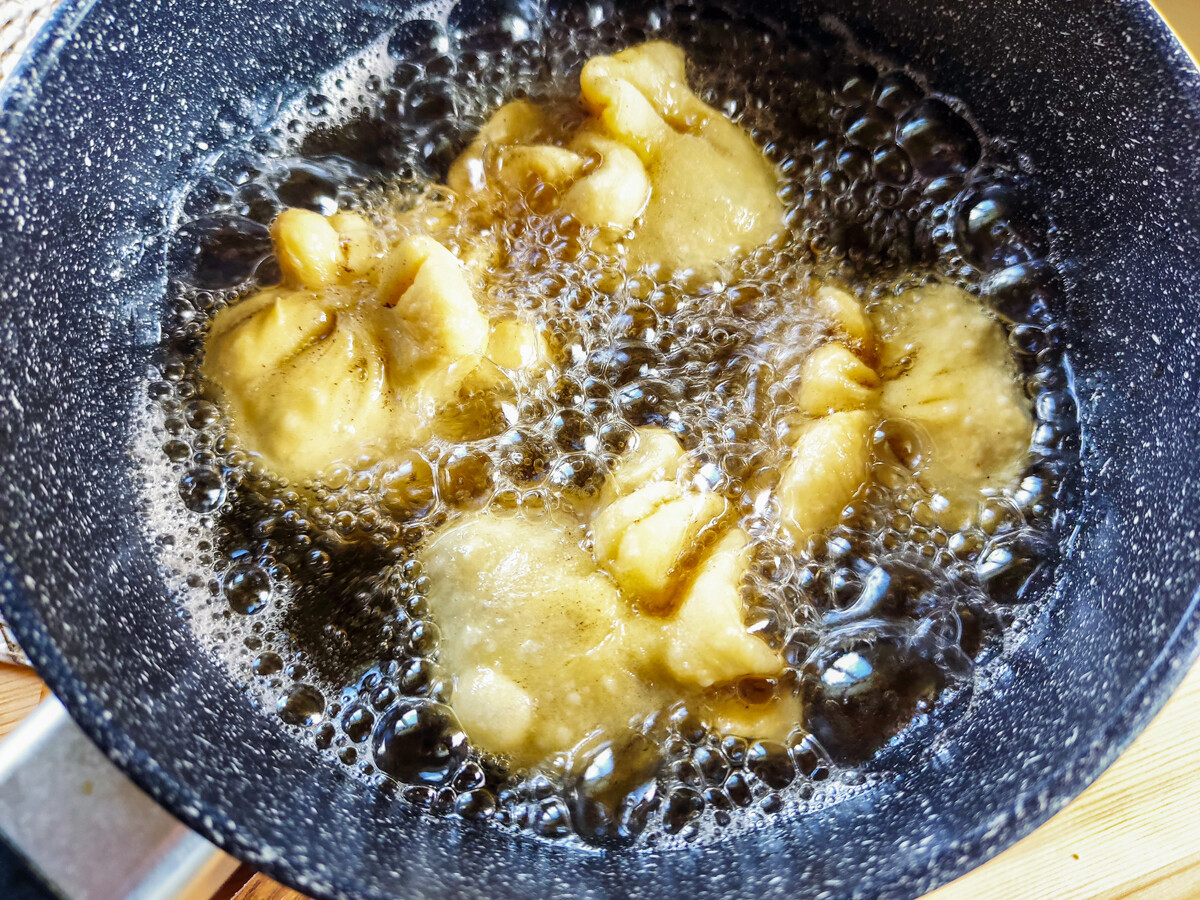
11. Put the pies on a cloth napkin, let them absorb the fat and serve them to your guests.
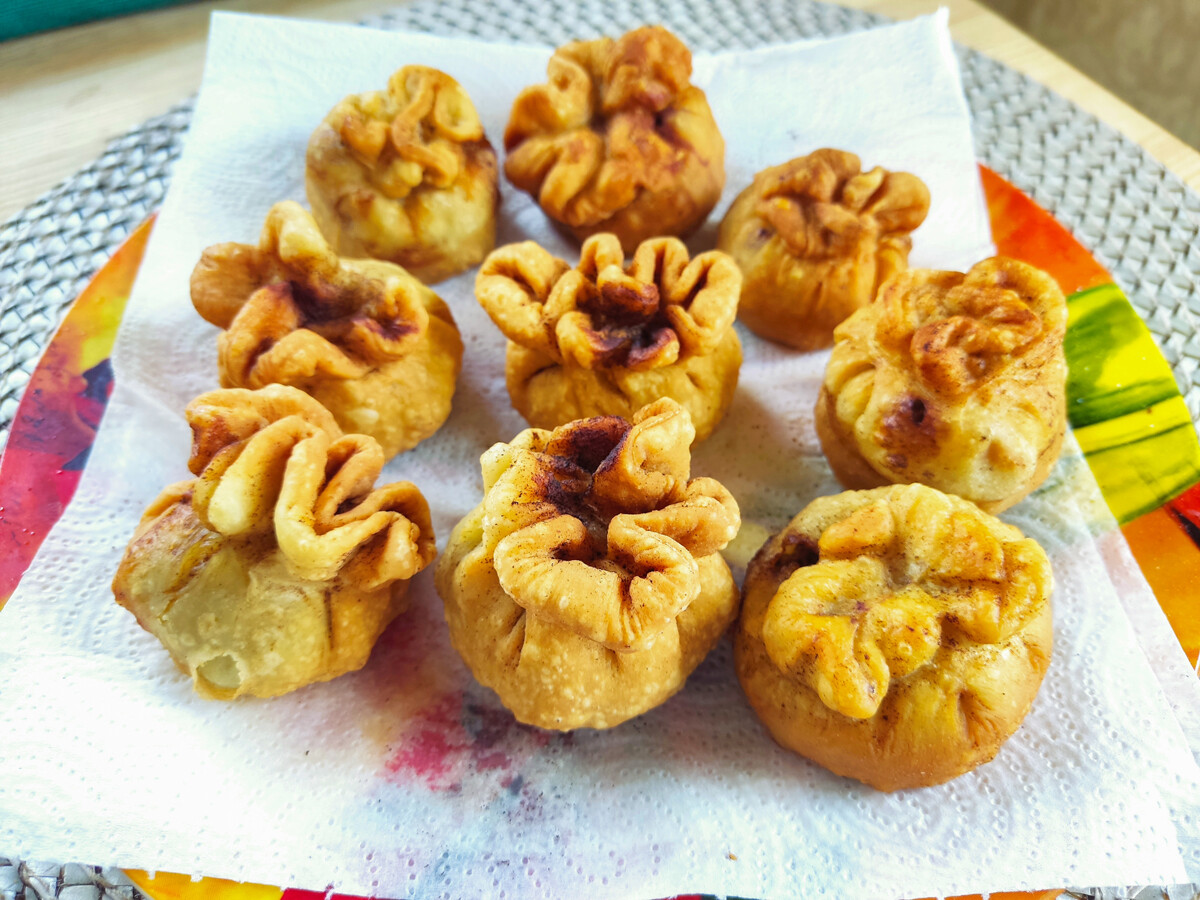
12. Enjoy!
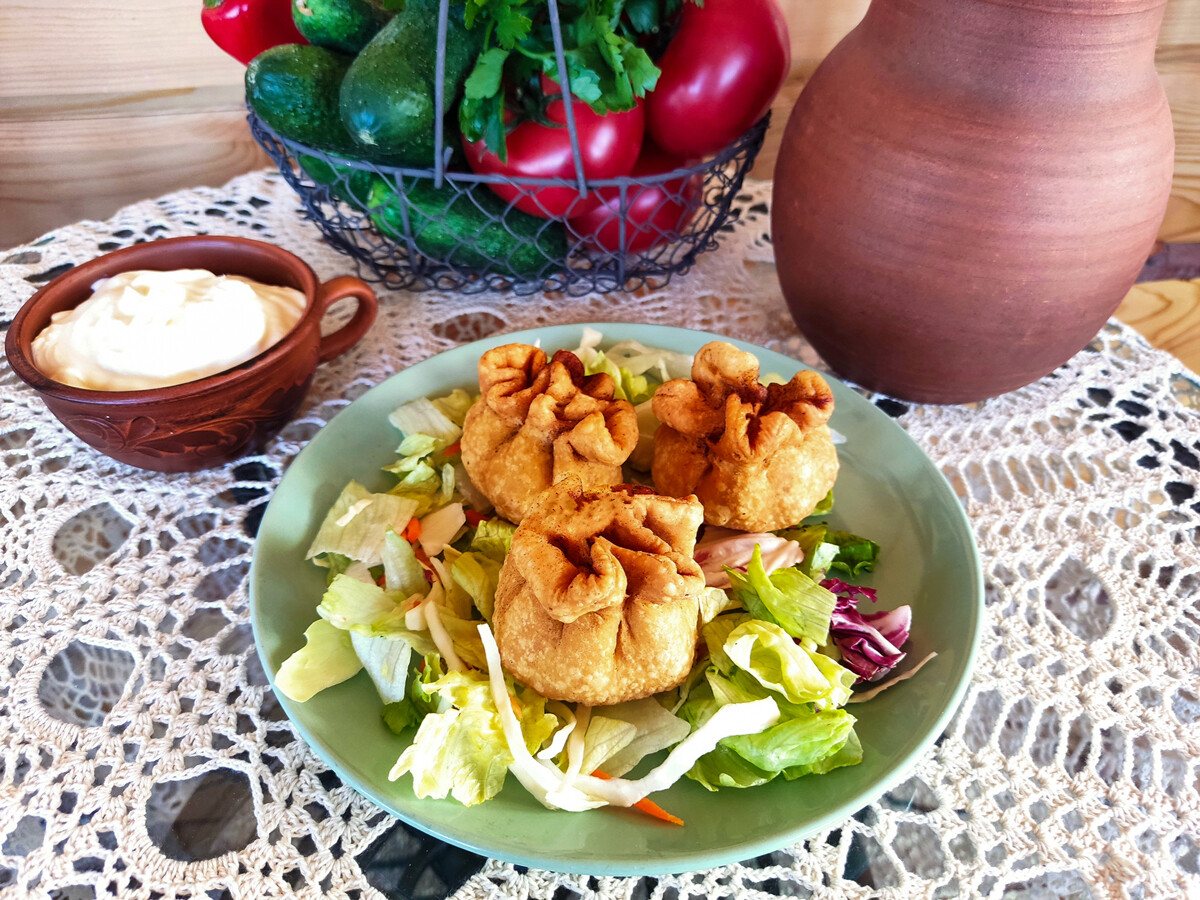
Dear readers,
Our website and social media accounts are under threat of being restricted or banned, due to the current circumstances. So, to keep up with our latest content, simply do the following:
Subscribe to our Telegram channels: Russia Beyond and The Russian Kitchen
Subscribe to our weekly email newsletter
Enable push notifications on our website
Install a VPN service on your computer and/or phone to have access to our website, even if it is blocked in your country
If using any of Russia Beyond's content, partly or in full, always provide an active hyperlink to the original material.
Subscribe
to our newsletter!
Get the week's best stories straight to your inbox